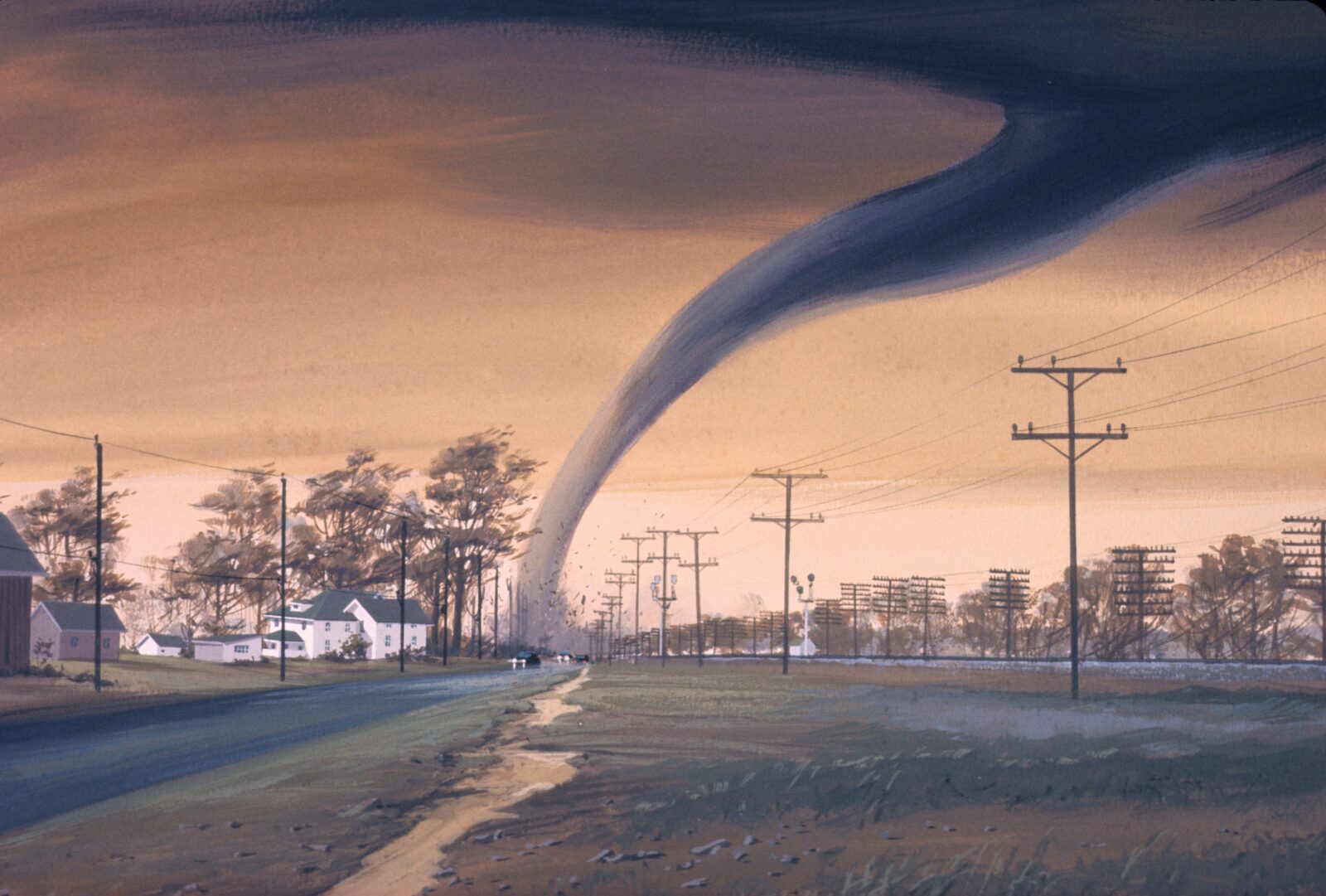The Swirling Killer Tornado
- Categories
- Governance
Second stop on my homelessness trip up the middle of the country was Perryton, a Texas panhandle city of 8,000 hit on June 15 by a tornado with 140 mph winds. I wrote about the results in August: three dead, dozens of mobile homes destroyed, hundreds of humans moving into houses of others or leaving town to avoid homelessness, But before I take you to Kansas cities next week, here’s one look at generations of surviving Texas disasters.
My starting point is Perryton’s Museum of the Plains, which features a statue of the most beloved fictional character the city has produced, Hank the Cowdog. John Erickson, who has written 80 Hank the Cowdog novels for children, is 80 years old. His family has ties to a crisis in the 1880s that left some west Texas families homeless, and the one this year that threatened to do the same.
During the years 1885-1887 Erickson’s great grandfather, Joe Sherman, endured the most disastrous drought in West Texas history: 27 months with hardly a drop of rain. The drought didn’t keep Sherman from marrying at the end of 1887, but it did push him to avoid homelessness by moving to a different county.
In 1887 Congress voted to send $10,000 of free seed to Texas farmers—but President Grover Cleveland vetoed the bill, arguing that “the lesson should be constantly enforced that though the people support the Government, Government should not support the people.” Cleveland noted that “Federal aid, in such cases, encourages the expectations of paternal care on the part of the Government and weakens the sturdiness of our national character.”
Cleveland argued that such aid, however benevolently intended, would reduce among Americans “that kindly sentiment and conduct which strengthens the bond of a common brotherhood.” Cleveland challenged volunteers to come forward, and they did. The Dallas News and the Louisville Courier-Journal were among the newspapers that promoted relief funds. The Courier-Journal editorialized that “Kentucky alone will send $10,000 in seed or in money . . . to justify the President’s contention that the people will do what is right.”
Clara Barton, president of the American Red Cross, also called on private sources to do the job: “The counties which have suffered from drought need help, without doubt, but not help from Congress.” Volunteer contributors from across the country responded. West Texas eventually received not $10,000 of federal funding, but over $100,000 in private aid.
The title of Erickson’s 25th Hank the Cowdog book, published in 1995, is The Case of the Swirling Killer Tornado. Hank and his dog pal Drover at first try to “stiffen our backs, stand our ground, and bark as we’ve never barked before.” Then they are flying through the air, along with “three galvanized stock tanks, a 16-foot stock trailer, a boy’s bicycle, three utility poles that had been broken off like matchsticks, a dozen chickens, several cottonwood trees, and two buzzards.”
On June 15 Mark Erickson, John Erickson’s son, was in the east pasture of his dad’s ranch south of Perryton, working on some fence. He received a text message that Perryton had been hit. He packed up chain saws and flashlights and headed north. He helped shovel rubble. The next morning he volunteered to drive a skidloader, which is like a forklift but has better maneuverability.
With his skidloader Mark Erickson approached an enormous rubble heap. Along with responders from two hundred miles around, he moved debris to the city dump. He recalled, “It was family to family, friend to friend, helper to someone he just met. Those with equipment brought it. A bunch of people bought grills. No one had gas or electricity, so people cooked over flames. It had the feel of a weird tailgate party: grab a hamburger or hot dog, then grab a shovel and go back into the rubble pile.
After a while Mark Erickson marveled at the sight: “People kept showing up. People wanted to help. People offered whatever they had, whether bottled water and food, air mattresses, whatever.” It didn’t matter that many helpers opposed the illegal immigration by which some in the mobile homes had come to America. They personally helped the undocumented they abstractly opposed.
John Erickson’s wife Kris summarized in more rancher-like prose what she had seen: “People came and hugged. They didn’t have to say much.”
